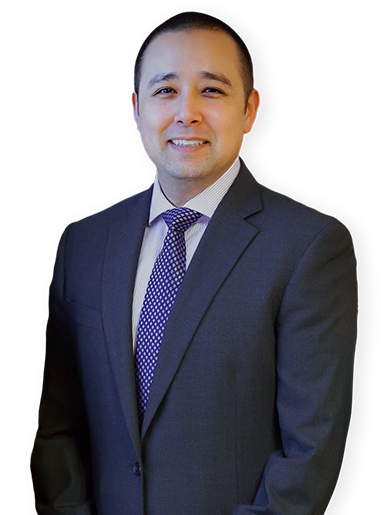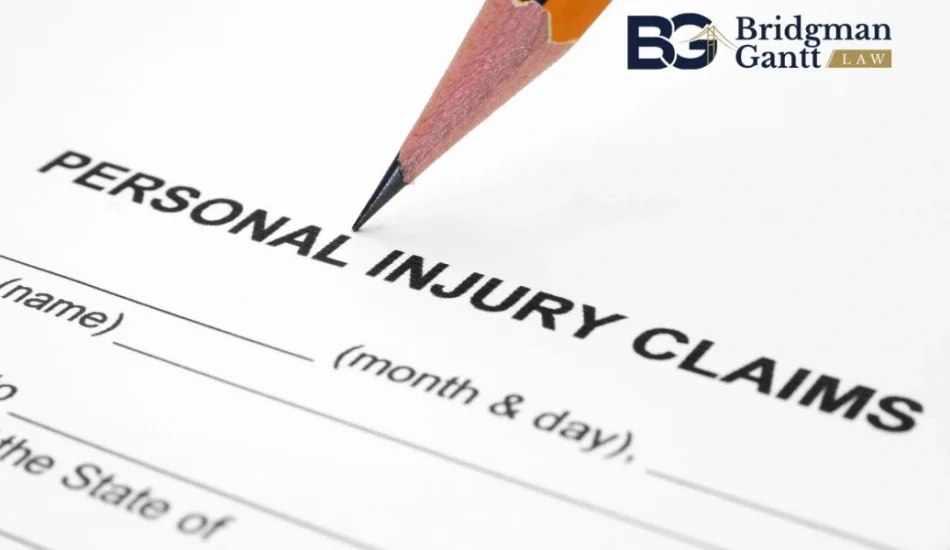|
|
Last
Modified on
Dec 10, 2025
North Carolina’s laws are designed to create a pathway for injured parties to hold the person who hurt them accountable in court. Often, this is done through financial compensation. While the claims process may seem straightforward to someone who hasn’t been through the process before, it is important to understand common mistakes to avoid in North Carolina personal injury claims so you do not compromise your legal claim to a fair settlement.
Delaying Medical Attention After the Accident
One of the most damaging mistakes after a car, motorcycle, bus, bicycle, pedestrian, or truck accident is putting off medical treatment. Even if you feel fine, symptoms from serious injuries, like concussions, internal trauma, or soft tissue damage, often manifest hours or days later. Immediate medical care creates a clear record linking your injuries to the incident, which is critical when filing a claim.
Across North Carolina, around 1,000 bicyclists are involved in reported crashes with vehicles each year, and 60 suffer serious injuries. Without medical documentation, insurers may argue your injuries were unrelated or exaggerated. Quick treatment can protect both your health and your legal claim.
Failing to Collect and Preserve Evidence
Evidence forms the basis of any injury claim. The civil courts at the Gaston County Courthouse and the Mecklenburg County Courthouse require plaintiffs to demonstrate that the defendant caused or contributed to their injuries. Evidence also plays a significant role in proving that the defendant’s actions led to material harm.
Failing to collect evidence could cause a major setback for you and your claim for compensation. Following a collision, do not forget to take photos of injuries, vehicle damage, road conditions, and witness contact information. These types of evidence can be especially helpful for bicycle collisions, which are often downplayed by defendants and insurance carriers even as the dangers to cyclists on North Carolina’s roads remain clear.
In 2021, Gaston County recorded 10 bicycle crashes that resulted in five fatalities. Whether you are a surviving loved one seeking justice and compensation following the loss of a close relative or an injured cyclist seeking a fair settlement, remember that preserving evidence can greatly improve your chances for a favorable outcome to your claim.
Giving a Recorded Statement Without Legal Advice
The old adage that what you say can and will be used against you is also true in civil court. What you say to insurance adjusters or the at-fault party’s attorney can play a significant role in the outcome of your case. Insurance adjusters may attempt to contact you following an accident. If you say anything that compromises your case, that can be used against you later on. At the time, talking may seem reasonable, but you should not do so without a Gastonia personal injury attorney present.
Insurance adjusters may try to deflect liability for certain types of accidents, like bicycle collisions. In North Carolina, around 1,000 bicyclists are involved in police-reported crashes with vehicles every year. On average, 20 are killed, and 60 sustain serious injuries. The financial stakes for a personal injury are high, and insurers know it.
Failing to Understand the Complexity of Your Case
Not all accidents are the same. A small fender-bender that doesn’t result in bodily injury would not be likely to require legal representation. When a collision or accident leads to bodily injury, the stakes can be much higher. Under the state’s strict contributory negligence rule, anyone who contributes to a collision may be barred from seeking compensation from the negligent party.
Truck collisions are notoriously complicated, and truck drivers and their trucking groups often try to find any reason to cast blame on injured victims. In 2021, the state saw 6,879 truck and bus crashes. Failing to understand the complexity of these cases and the need for legal representation can lead to unfavorable outcomes in your injury claim.
FAQs
How Much Is Pain and Suffering Worth in North Carolina?
Pain and suffering in North Carolina personal injury cases are valued based on injury severity, recovery time, and how the injury affects daily life. There’s no fixed formula, but documented impact, like journal entries, medical reports, and special evaluations, can increase the value. Juries and insurers consider credibility and evidence. The more specific your proof, the stronger your chance of maximizing compensation.
How Hard Is It to Win a Personal Injury Claim?
Winning a personal injury claim in North Carolina depends on proving another party’s fault and showing actual damages. Challenges include contributory negligence, weak evidence, or delays in treatment. Even minor mistakes can hurt your case. Consistent medical care, clear documentation, and legal support are critical. Taking immediate action after the injury improves your chances of building a successful claim.
How Are Personal Injury Settlements Paid Out in NC?
Personal injury settlements in North Carolina are usually paid as a lump sum, but structured payments may be arranged in larger cases. The funds go first to liens, medical providers, and legal fees, with the remainder to the injured party. Settlement distribution depends on the agreement terms and legal obligations. Reviewing disbursement breakdowns in advance ensures transparency and prevents unpleasant surprises.
Why Do Most Personal Injury Cases Settle?
Most personal injury cases settle in North Carolina because trials are time-consuming, expensive, and unpredictable. Settlements allow both sides to avoid risk and reach a guaranteed outcome. Insurance companies often prefer controlled payouts to jury verdicts. A well-prepared case backed by strong evidence increases the chance of a favorable offer. Settling can be strategic when it protects your long-term interests.
Avoid Serious Legal Pitfalls by Working With Bridgman Gantt Law Offices
One misstep after an accident can delay or damage your ability to recover compensation. At Bridgman Gantt Law Offices, we help clients avoid the types of mistakes that can derail personal injury claims. From missed deadlines to dealing directly with insurance adjusters, we know where things go wrong and how to get them right.
With more than 60 years of combined experience, our attorneys provide hands-on support at every stage of the claims process. We listen, strategize, and advocate with your interests in mind. If you’ve been injured and want to protect your claim from start to finish, contact our office today to schedule a consultation.
See Related Posts:






